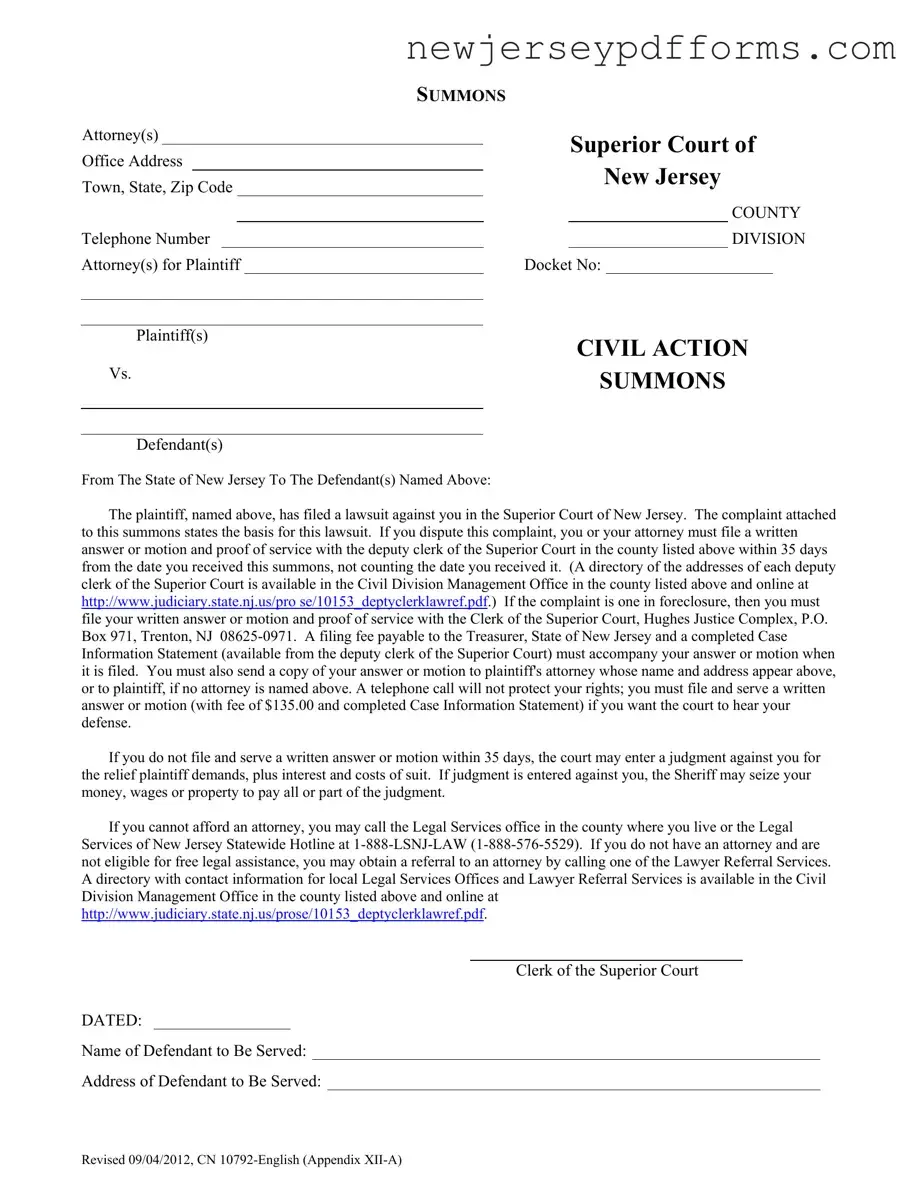What is a New Jersey Summons form?
A New Jersey Summons form is a legal document issued by the Superior Court of New Jersey to notify a defendant that a lawsuit has been filed against them. It includes essential information such as the names of the parties involved, the court where the case is being heard, and instructions on how to respond to the lawsuit. The summons serves as an official notice that legal action has commenced and outlines the next steps for the defendant.
What should I do if I receive a New Jersey Summons?
If you receive a New Jersey Summons, it is crucial to take it seriously. You have 35 days from the date you received the summons to file a written answer or motion with the court. This response must be submitted to the deputy clerk of the Superior Court in the county listed on the summons. Failing to respond within this timeframe may result in a default judgment against you, meaning the court may rule in favor of the plaintiff without hearing your side of the case.
How do I respond to a New Jersey Summons?
To respond to a New Jersey Summons, prepare a written answer or motion that addresses the claims made in the complaint. You must file this document with the deputy clerk of the Superior Court and pay a filing fee of $135.00. Along with your response, include a completed Case Information Statement, which you can obtain from the deputy clerk. Additionally, send a copy of your response to the plaintiff’s attorney or the plaintiff directly if they do not have an attorney.
What happens if I do not respond to the Summons?
If you do not respond to the Summons within the 35-day period, the court may enter a judgment against you. This judgment could include the relief the plaintiff is seeking, as well as any associated costs and interest. Once a judgment is entered, the plaintiff may take further legal action, such as garnishing your wages or seizing your property to satisfy the judgment.
Can I get legal help if I cannot afford an attorney?
If you cannot afford an attorney, there are resources available to assist you. You can contact the Legal Services office in your county or call the Legal Services of New Jersey Statewide Hotline at 1-888-LSNJ-LAW (1-888-576-5529). They can provide guidance on your legal options and may offer free or low-cost legal assistance. It is important to seek help as soon as possible to ensure your rights are protected.
Where can I find more information about the New Jersey Summons process?
For more information about the New Jersey Summons process, you can visit the New Jersey Judiciary website. They provide resources and directories for local Legal Services Offices and Lawyer Referral Services. Additionally, the Civil Division Management Office in your county can offer assistance and answer any questions you may have regarding the summons and your legal rights.
What if the complaint is about foreclosure?
If the complaint you received is related to foreclosure, you must file your response with the Clerk of the Superior Court at the Hughes Justice Complex in Trenton, New Jersey. The same 35-day deadline applies, and you must include the filing fee and a completed Case Information Statement with your response. Foreclosure cases can have serious consequences, so it is advisable to seek legal assistance as soon as possible to navigate the process effectively.

